This week, our writers bring you the latest news from Singapore, Argentina, Sweden, and Malaysia. In Singapore, the shortlist for the Singapore Literature Prize was announced; in Argentina, the Asociación Argentina de Traductores e Intérpretes has been celebrating National Translation month with a series of talks; in Sweden, the annual crime fiction festival Crimetime has begun; and in Malaysia, Erica Eng became the first Malaysian winner of the Eisner Award. Read on to find out more!
Shawn Hoo, Editor-at-Large, reporting from Singapore
Singapore’s premier literary award, the biennial Singapore Literature Prize, held a virtual awards ceremony for the first time last night, and handed out prizes across the nation’s four official languages (Malay, Tamil, Mandarin, and English). Notably, Marylyn Tan made history with her queer and transgressive poetry collection, GAZE BACK, when she became the first woman (and lesbian) writer to win the top prize for Poetry in English. Other big winners include Wong Koi Tet (published by City Book Room) and Sithuraj Ponraj, who walked away with two prizes each. Evidently, the arts have continued to feel the negative repercussions of the pandemic, as the top prize money was slashed from SGD$10,000 to SGD$3,000 this year due to a lack of funding.
Prior to the ceremony, Unggun Creative’s Jamal Ismail—who won the Merit Award for his novel Tunjuk Langit (Pointing the Sky)—had bemoaned the lesser prize money, but wondered if winners could alternatively be awarded the “translation of their works into other languages.” Literary translations across languages in Singapore remain an under-tapped potential.
Hearty congratulations to previous Asymptote contributors who made the shortlist: Hamid Roslan, for his inventive and cacophonous bilingual collection of poetry, parsetreeforestfire; and Amanda Lee Koe, for Delayed Rays of a Star, a novel that unfolds an ambitiously transnational history through the lives of cinema icons Anna May Wong, Marlene Dietrich, and Leni Riefenstahl.
In other prize-related news, the Epigram Books Fiction Prize—formerly reserved for Singaporean writers—was for the first time this year open to submissions from Southeast Asia. This year’s winning novel, How the Man in Green Saved Pahang, and Possibly the World, is written by Kuala Lumpur-born Joshua Kam and has just been released. Pre-orders are underway for the books by the other finalists who hail from across the region. With the emphasis on regional submissions continued for next year, the Singapore-based prize looks set to become an important institution shaping the regional English-language publication scene.
Finally, an online symposium held on August 12 explored the role of the anthology in Singapore’s literary ecosystem, and put the nation’s feast of anthologies into focus. In fact, the latest anthology to arrive just this month, Food Republic: A Singapore Literary Banquet (eds. Ann Ang, Daryl Lim Wei Jie, and Tse Hao Guang), describes itself as a literal feast: “a buffet, a banquet, an omakase, a smorgasbord, a nasi padang spread, a thali or a rijsttafel.”


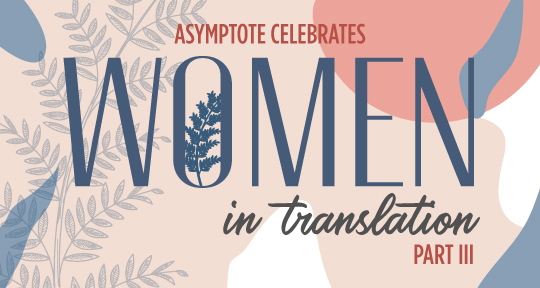

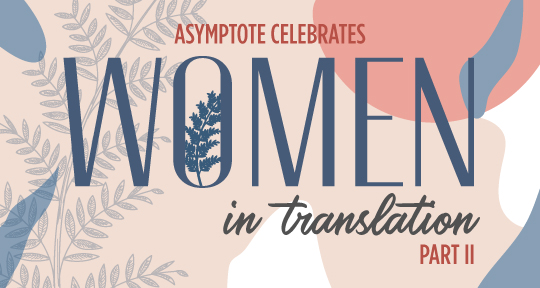


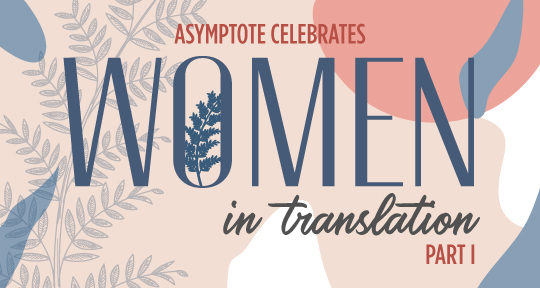


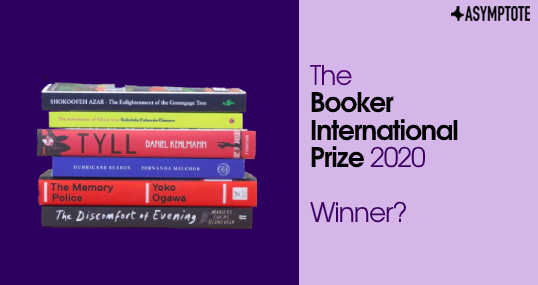


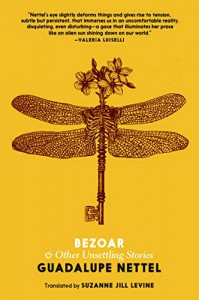

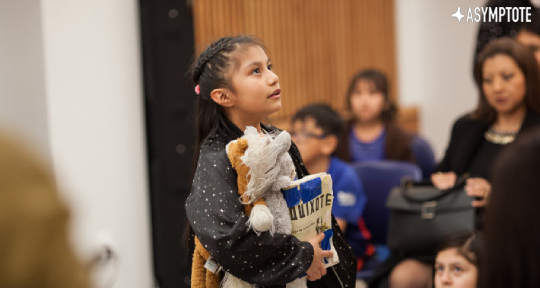
Announcing our August Book Club Selection: People From My Neighborhood by Hiromi Kawakami
The portrayal and analysis of collective experience makes this a text that truly meets our moment.
As we continue into the latter half of this increasingly surreal year, one finds the need for a little magic. Thus it is with a feeling of great timeliness that we present our Book Club selection for the month of August, the well-loved Hiromi Kawakami’s new fiction collection, People From My Neighborhood. In turns enigmatic and poignant, as puzzling as it is profound, Kawakami’s readily quiet, pondering work is devoted to the way our human patterns may be spliced through with intrigue, strangeness, and fantasy; amongst these intersections of normality and sublimity one finds a great and wandering beauty.
The Asymptote Book Club aspires to bring the best in translated fiction every month to readers around the world. You can sign up to receive next month’s selection on our website for as little as USD15 per book; once you’re a member, you can join the online discussion on our Facebook page!
People From My Neighbourhood by Hiromi Kawakami, translated from the Japanese by Ted Goossen, Granta, 2020
Like a box of chocolates, Hiromi Kawakami’s People From My Neighbourhood (translated from the Japanese by Ted Goossen) contains an assortment of bite-sized delights, each distinct yet related. This peculiar collection of flash fiction paints a portrait of exactly what the title suggests—the denizens of the narrator’s neighborhood—while striking a perfect balance between intriguing specificity and beguiling universality. The opening chapters introduce readers to each of the neighborhood’s curious inhabitants, while later chapters build upon the foundation, gradually erecting a universe of complex human relationships, rigorous social commentary, immense beauty, and more than a little magic.
Existing fans of Kawakami’s will surely recognize these common features of her award-winning body of work, while first-time readers will likely go searching for more. Goossen is better known as a translator of Murakami and editor of the English version of the Japanese literary magazine MONKEY: New Writing from Japan (formerly Monkey Business); ever committed to introducing Anglophone readers to non-canonical Japanese writers, he brings his flair for nonchalant magical realism to this winning new collaboration.
The first story, “The Secret,” introduces readers to the anonymous narrator and sets the tone for the collection. First presented as genderless, (we only find out later that she is female) she discovers an androgynous child, who turns out to be male, under a white blanket in a park. The child, wild and independent, comes home with her. Despite occasional disappearances, he keeps her company as she ages, all the while remaining a child. In this story, we receive her only concrete—but general—description of herself: “I’ve come to realize that he can’t be human after all, seeing how he’s stayed the same all these years. Humans change over time. I certainly have. I’ve aged and become grumpy. But I’ve come to love him, though I didn’t at first.” This one statement exemplifies many of the collection’s trademark characteristics and overarching themes: a version of time in which past, present, and eternity coexist, the supernatural, and the narrator’s fascinating method of characterization. READ MORE…
Contributor:- Lindsay Semel
; Language: - Japanese
; Place: - Japan
; Writer: - Hiromi Kawakami
; Tags: - family
, - fantasy
, - Japanese literature
, - Magical Realism
, - social commentary
, - strangeness
, - Women Writers